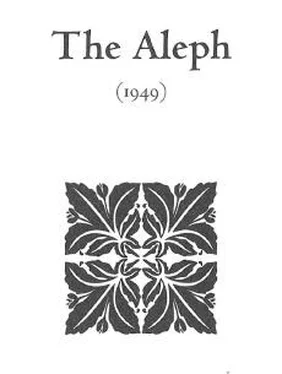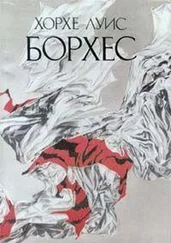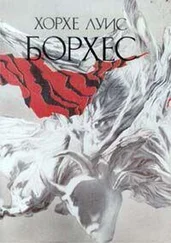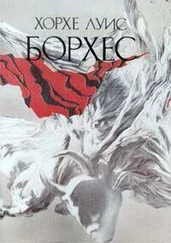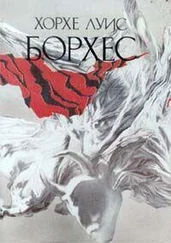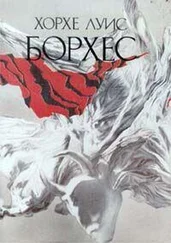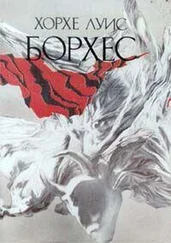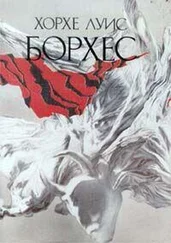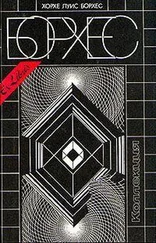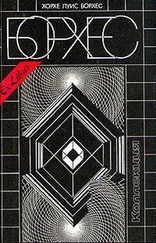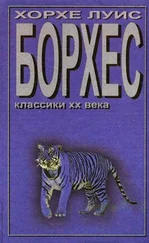Хорхе Борхес - Collected Fictions
Здесь есть возможность читать онлайн «Хорхе Борхес - Collected Fictions» весь текст электронной книги совершенно бесплатно (целиком полную версию без сокращений). В некоторых случаях можно слушать аудио, скачать через торрент в формате fb2 и присутствует краткое содержание. Год выпуска: 1999, ISBN: 1999, Издательство: Penguin (UK), Жанр: Старинная литература, на английском языке. Описание произведения, (предисловие) а так же отзывы посетителей доступны на портале библиотеки ЛибКат.
- Название:Collected Fictions
- Автор:
- Издательство:Penguin (UK)
- Жанр:
- Год:1999
- ISBN:9780140286809
- Рейтинг книги:5 / 5. Голосов: 1
-
Избранное:Добавить в избранное
- Отзывы:
-
Ваша оценка:
- 100
- 1
- 2
- 3
- 4
- 5
Collected Fictions: краткое содержание, описание и аннотация
Предлагаем к чтению аннотацию, описание, краткое содержание или предисловие (зависит от того, что написал сам автор книги «Collected Fictions»). Если вы не нашли необходимую информацию о книге — напишите в комментариях, мы постараемся отыскать её.
Collected Fictions — читать онлайн бесплатно полную книгу (весь текст) целиком
Ниже представлен текст книги, разбитый по страницам. Система сохранения места последней прочитанной страницы, позволяет с удобством читать онлайн бесплатно книгу «Collected Fictions», без необходимости каждый раз заново искать на чём Вы остановились. Поставьте закладку, и сможете в любой момент перейти на страницу, на которой закончили чтение.
Интервал:
Закладка:
PENGUIN BOOKS
COLLECTED FICTIONS
Jorge Luis Borges was born in Buenos Aires in 1899 and was educated in Europe. One of the most widely acclaimed writers of our time, he published many collections of poems, essays, and short stories before his death in Geneva in June 1986. In 1961 Borges shared the International Publishers’ prize with Samuel Beckett. The Ingram Merrill Foundation granted him its Annual Literary Award in 1966 for his “outstanding contribution to literature.” In 1971 Columbia University awarded him the first of many degrees of Doctor of Letters, honoris causa (eventually the list included both Oxford and Cambridge), that he was to receive from the English-speaking world. In 1971 he also received the fifth biennial Jerusalem Prize and in 1973 was given one of Mexico's most prestigious cultural awards, the Alfonso Reyes Prize. In 1980 he shared with Gerardo Diego the Cervantes Prize, the Spanish world’s highest literary accolade. Borges was Director of the Argentine National Library from 1955 until 1973.
Andrew Hurley is Professor of English at the University of Puerto Rico in San Juan, where he also teaches in the Translation Program. He has translated over two dozen book-length works of history, poetry, and fiction, including novels by Reinaldo Arenas. Ernesto Sabato, Fernando Arrabal, Gustavo Sainz, and Edgardo Rodriguez Julia and stories by Ana Lydia Vega, and many shorter works.

Contents
A UNIVERSAL HISTORY OF INIQUITY (1935)
Preface to the First Edition
Preface to the 1954 Edition
The Cruel Redeemer Lazarus Morell
The Improbable Impostor Tom Castro
The Widow Ching—Pirate
Monk Eastman, Purveyor of Iniquities
The Disinterested Killer Bill Harrigan
The Uncivil Teacher of Court Etiquette Kôtsuké no Suké
Hakim, the Masked Dyer of Merv
Man on Pink Corner*
Et cetera
Index of Sources
FICTIONS (1944)
THE GARDEN OF FORKING PATHS (1941)
Foreword
Tlön, Uqbar, Orbis Tertius
The Approach to Al-Mu'tasim
Pierre Menard, Author of the Quixote
The Circular Ruins
The Lottery in Babylon
A Survey of the Works of Herbert Quain
The Library of Babel
The Garden of Forking Paths
ARTIFICES (1944)
Foreword
Funes, His Memory*
The Shape of the Sword
The Theme of the Traitor and the Hero
Death and the Compass
The Secret Miracle
Three Versions of Judas
The End
The Cult of the Phoenix
The South
THE ALEPH (1949)
The Immortal
The Dead Man
The Theologians
Story of the Warrior and the Captive Maiden
A Biography of Tadeo Isidoro Cruz (1829—1874)
Emma Zunz
The House of Asterion
The Other Death
Deutsches Requiem
Averroës' Search
The Zahir
The Writing of the God
Ibn-Hakam al-Bokhari, Murdered in His Labyrinth
The Two Kings and the Two Labyrinths
The Wait
The Man on the Threshold
The Aleph
Afterword
THE MAKER (1960)
Foreword
The Maker*
Dreamtigers*
A Dialog About a Dialog
Toenails
Covered Mirrors
Argumentum Ornithologicum
The Captive
The Mountebank
Delia Elena San Marco
A Dialog Between Dead Men
The Plot
A Problem
The Yellow Rose
The Witness
Martín Fierro
Mutations
Parable of Cervantes and the Quixote
Paradiso, XXXI, 108
Parable of the Palace
Everything and Nothing*
Ragnarök
Inferno, I, 32
Borges and I
Museum
On Exactitude in Science
In Memoriam, J.F.K.
Afterword
IN PRAISE OF DARKNESS (1969)
Foreword
The Ethnographer
Pedro Salvadores
Legend
A Prayer
His End and His Beginning
BRODIE'S REPORT (1970)
Foreword
The Interloper
Unworthy
The Story from Rosendo Juárez
The Encounter
Juan Muraña
The Elderly Lady
The Duel
The Other Duel
Guayaquil*
The Gospel According to Mark
Brodie's Report
THE BOOK OF SAND (1975)
The Other
Ulrikke
The Congress
There Are More Things
The Sect of the Thirty
The Night of the Gifts
The Mirror and the Mask
"Undr"
A Weary Man's Utopia
The Bribe
Avelino Arredondo
The Disk
The Book of Sand
Afterword
SHAKESPEARE'S MEMORY (1983)
August 25, 1983
Blue Tigers
The Rose of Paracelsus
Shakespeare's Memory
A Note on the Translation
Acknowledgments
Notes to the Fictions

I inscribe this book to S. D. English, innumerable, and an Angel. Also: I offer her that kernel of myself that I have saved, somehow the central heart that deals not in words, traffics not with dreams, and is untouched by time, by joy, by adversities.
Preface to the First Edition
The exercises in narrative prose that constitute this book were performed from 1933 to 1934. They are derived, I think, from my rereadings of Stevenson and Chesterton, from the first films of von Sternberg, and perhaps from a particular biography of the Argentine poet Evaristo Carriego.* Certain techniques are overused: mismatched lists, abrupt transitions, the reduction of a person's entire life to two or three scenes. (It is this pictorial intention that also governs the story called "Man on Pink Corner.") The stories are not, nor do they attempt to be, psychological.
With regard to the examples of magic that close the book, the only right I can claim to them is that of translator and reader. I sometimes think that good readers are poets as singular, and as awesome, as great authors themselves. No one will deny that the pieces attributed by Valéry to his pluperfect Monsieur Edmond Teste are worth notoriously less than those of his wife and friends.
Reading, meanwhile, is an activity subsequent to writing—more resigned, more civil, more intellectual.
J. L. B.
Buenos Aires May 27,1935
Preface to the 1954 Edition
I would define the baroque as that style that deliberately exhausts (or tries to exhaust) its own possibilities, and that borders on self-caricature. In vain did Andrew Lang attempt, in the eighteen-eighties, to imitate Pope's Odyssey; it was already a parody, and so defeated the parodist's attempt to exaggerate its tautness. "Baroco" was a term used for one of the modes of syllogistic reasoning; the eighteenth century applied it to certain abuses in seventeenth-century architecture and painting. I would venture to say that the baroque is the final stage in all art, when art flaunts and squanders its resources. The baroque is intellectual, and Bernard Shaw has said that all intellectual labor is inherently humorous. This humor is unintentional in the works of Baltasar Gracian* but intentional, even indulged, in the works of John Donne.
The extravagant title of this volume proclaims its baroque nature. Softening its pages would have been equivalent to destroying them; that is why I have preferred, this once, to invoke the biblical words quod scripsi, scripsi (John 19:22), and simply reprint them, twenty years later, as they first appeared. They are the irresponsible sport of a shy sort of man who could not bring himself to write short stories, and so amused himself by changing and distorting (sometimes without aesthetic justification) the stories of other men. From these ambiguous exercises, he went on to the arduous composition of a straightforward short story—"Man on Pink Corner"—which he signed with the name of one of his grandfather's grandfathers, Francisco Bustos; the story has had a remarkable, and quite mysterious, success.
Читать дальшеИнтервал:
Закладка:
Похожие книги на «Collected Fictions»
Представляем Вашему вниманию похожие книги на «Collected Fictions» списком для выбора. Мы отобрали схожую по названию и смыслу литературу в надежде предоставить читателям больше вариантов отыскать новые, интересные, ещё непрочитанные произведения.
Обсуждение, отзывы о книге «Collected Fictions» и просто собственные мнения читателей. Оставьте ваши комментарии, напишите, что Вы думаете о произведении, его смысле или главных героях. Укажите что конкретно понравилось, а что нет, и почему Вы так считаете.
